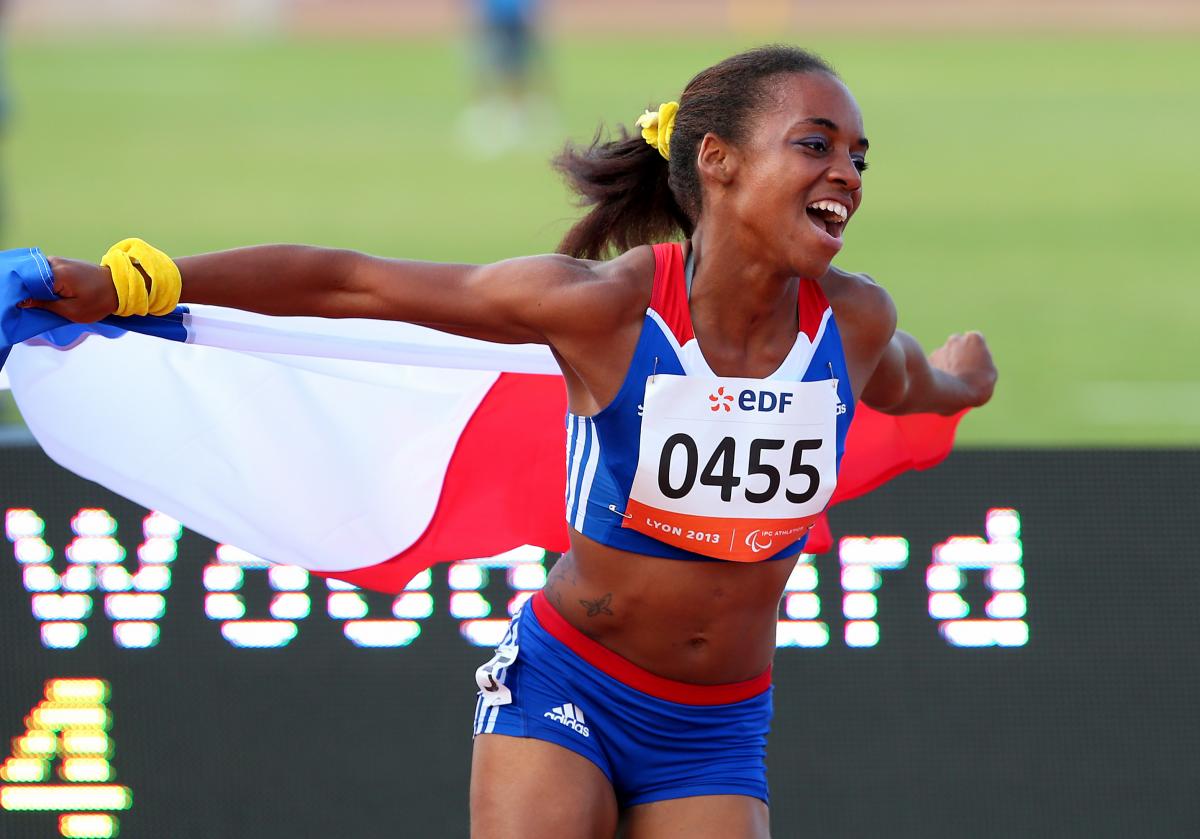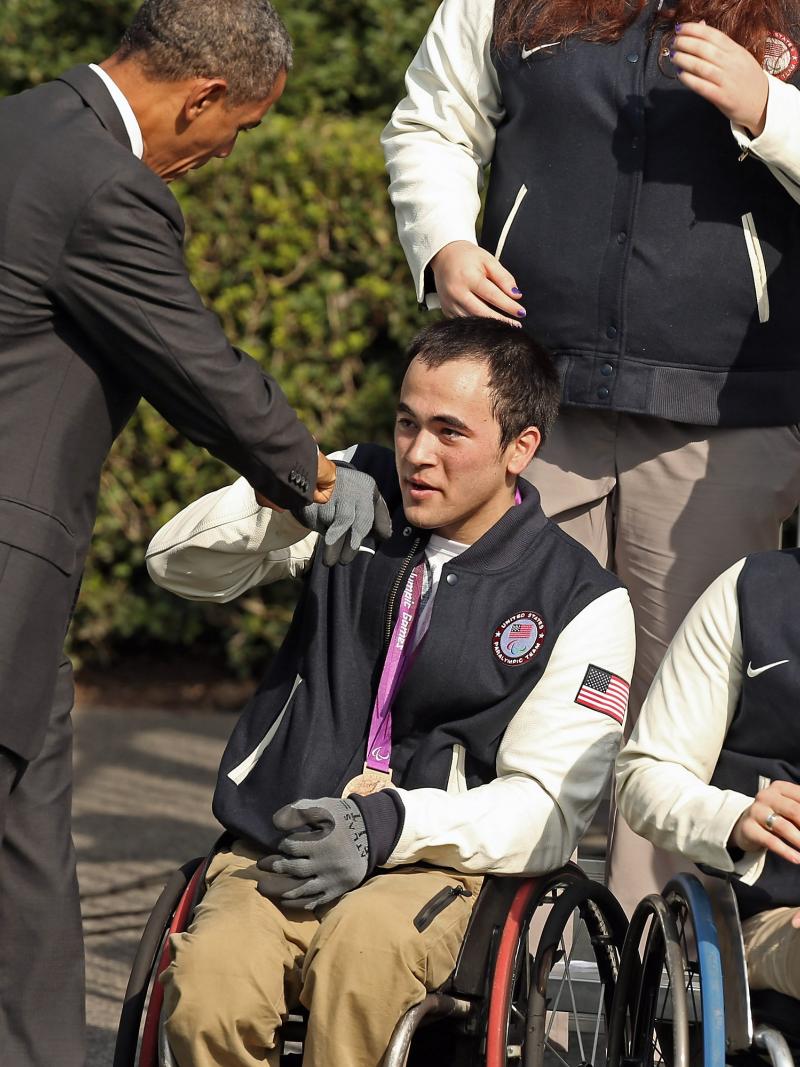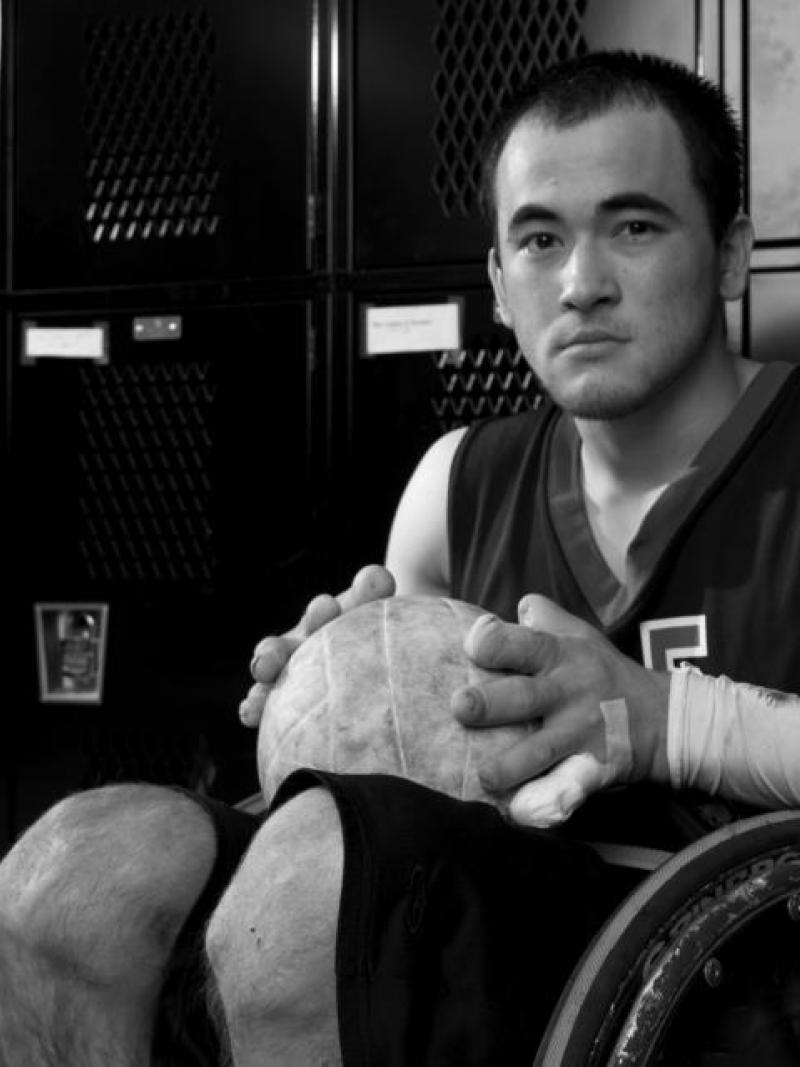Chuck Aoki: I want ‘medal equality’
IPC blogger and the USA’s wheelchair rugby star, Chuck Aoki, wants to see every medal awarded to athletes in team sports to count towards the medal tally at major competitions. 08 Aug 2014
Mandy Francois-Elie winning the 100m T37 in Lyon 2013
"Every single athlete has dedicated their lives to their sport. That holds true across team sports, whether an athlete plays every minute of every game, or if they don't play a single second"
I'd like to talk to you all about something that only comes into play every two years, but I think it's important enough that I want to begin the discussion now.
What I'm talking about is something I call ‘medal equality’. Let me explain what I mean by this. When an athlete such as Matt Skelhon, a shooter from Great Britain wins a medal at the Paralympics, his medal is added to his country's overall medal count. It doesn't matter the colour.
Of course, the different colours are kept track of, and each country strives to win both the overall and gold medal count. But at the end of the day, his medal is added to the total count. The same goes with a swimmer, a runner, a power lifter and an archer. Each medal won by an athlete competing in an individual sport is added equally to the country's respective medal count.
So after Australia won the gold medal in wheelchair rugby at London 2012, all 12 of their athletes were given gold medals. It stands to reason then, that 12 medals should have been added to Australia's medal count as well, right? Wrong. Just one medal was added to Australia's medal count.
This is the case for all team sports - wheelchair basketball, goalball, five-a-side and seven-a-side football, sledge hockey, sitting volleyball, and wheelchair curling. Now I'm sure people are asking, why does this matter? And it's a fair question.
The answer has two parts to it. First, at the Paralympic level, every single athlete has dedicated their lives to their sport. That holds true across team sports, whether an athlete plays every minute of every game, or if they don't play a single second for the entire tournament. And any team sport athlete will tell you that each athlete on their team plays a vital role, regardless of how much time they see on the court, pitch, rink, or whatever.
So when 12 athletes give up everything to be the best in their country, work hard and train together, they deserve to be recognized for their individual contributions through the medal count.
This leads into the second part of why having medal equality is important. Many countries determine funding for Paralympic sports by medal count. So, funding one athlete who competes in five or six events, with the chance to medal in all of them, will look much more appealing than funding a team of 12 athletes, who have a chance to win one medal.
Now I don't blame countries for this. Why wouldn't they fund their best chances to win medals, and lots of them? I'm also not accusing the IPC of any sort of bias against team sports either, I am simply hoping to point out an inconsistency that exists, and how athletes are in turn treated unequally because of it. And with improved funding for teams, the quality of competition will only grow stronger.
Aoki is currently competing in the IWRF Wheelchair Rugby World Championships in Odense, Denmark. For more information on this competition, visit the tournament homepage.

 Facebook
Facebook
 Instagram
Instagram
 Twitter
Twitter
 Youtube
Youtube
 TikTok
TikTok
 Newsletter Subscribe
Newsletter Subscribe



